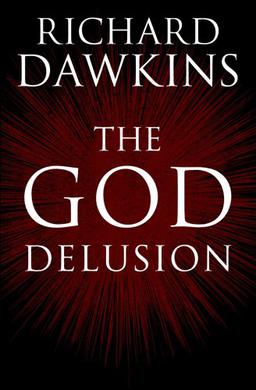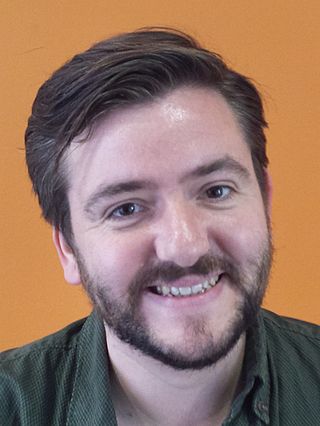
Richard Dawkins is a British evolutionary biologist and author. He is an emeritus fellow of New College, Oxford, and was Professor for Public Understanding of Science in the University of Oxford from 1995 to 2008. His 1976 book The Selfish Gene popularised the gene-centred view of evolution, as well as coining the term meme. Dawkins has won several academic and writing awards.

Secular humanism is a philosophy, belief system or life stance that embraces human reason, secular ethics, and philosophical naturalism while specifically rejecting religious dogma, supernaturalism, and superstition as the basis of morality and decision making.

Humanists UK, known from 1967 until May 2017 as the British Humanist Association (BHA), is a charitable organisation which promotes secular humanism and aims to represent "people who seek to live good lives without religious or superstitious beliefs" in the United Kingdom by campaigning on issues relating to humanism, secularism, and human rights. It seeks to act as a representative body for non-religious people in the UK.

Christian humanism regards humanist principles like universal human dignity, individual freedom, and the importance of happiness as essential and principal or even exclusive components of the teachings of Jesus. Proponents of the term trace the concept to the Renaissance or patristic period, linking their beliefs to the scholarly movement also called 'humanism'.
Torcaso v. Watkins, 367 U.S. 488 (1961), was a United States Supreme Court case in which the court reaffirmed that the United States Constitution prohibits states and the federal government from requiring any kind of religious test for public office, in this specific case as a notary public.

Antony Garrard Newton Flew was an English philosopher. Belonging to the analytic and evidentialist schools of thought, Flew worked on the philosophy of religion. During the course of his career he taught philosophy at the universities of Oxford, Aberdeen, Keele, and Reading in the United Kingdom, and at York University in Toronto, Canada.

Anthony Clifford Grayling is a British philosopher and author. He was born in Northern Rhodesia and spent most of his childhood there and in Nyasaland. In 2011 he founded and became the first Master of New College of the Humanities, an independent undergraduate college in London. Until June 2011, he was Professor of Philosophy at Birkbeck, University of London, where he taught from 1991. He is also a supernumerary fellow of St Anne's College, Oxford, where he formerly taught.
A person's life stance, or lifestance, is their relation with what they accept as being of ultimate importance. It involves the presuppositions and theories upon which such a stance could be made, a belief system, and a commitment to potentials working it out in one's life.

Rebecca Newberger Goldstein is an American philosopher, novelist, and public intellectual. She has written ten books, both fiction and non-fiction. She holds a Ph.D. in philosophy of science from Princeton University, and is sometimes grouped with novelists such as Richard Powers and Alan Lightman, who create fiction that is knowledgeable of, and sympathetic toward, science.

Humanism is a philosophical stance that emphasizes the individual and social potential, and agency of human beings, whom it considers the starting point for serious moral and philosophical inquiry.

The God Delusion is a 2006 book by British evolutionary biologist and ethologist Richard Dawkins. In The God Delusion, Dawkins contends that a supernatural creator, God, almost certainly does not exist, and that belief in a personal god qualifies as a delusion, which he defines as a persistent false belief held in the face of strong contradictory evidence. He is sympathetic to Robert Pirsig's statement in Lila (1991) that "when one person suffers from a delusion it is called insanity. When many people suffer from a delusion it is called religion." In the book, Dawkins explores the relationship between religion and morality, providing examples that discuss the possibility of morality existing independently of religion and suggesting alternative explanations for the origins of both religion and morality.
Anthony B. Pinn is an American professor working at the intersections of African-American religion, constructive theology, and humanist thought. Pinn is the Agnes Cullen Arnold Professor of Humanities and Professor of Religious Studies at Rice University. He is also the founder and executive director of the Center for Engaged Research and Collaborative Learning in Houston, Texas, and Director of Research for the Institute for Humanist Studies in Washington, D.C.

The Tyneside Group of the North East Humanists (NEH) was founded on 17 September 1957, although organised secularism in North East England had been active from the 1860s. The group adopted the name North East Humanists in 1997, after merging with the Teesside Humanist group.

The Portable Atheist: Essential Readings for the Nonbeliever (2007) is an anthology of atheist and agnostic thought edited by Christopher Hitchens.
Atheism, in the broadest sense, is an absence of belief in the existence of deities. Less broadly, atheism is a rejection of the belief that any deities exist. In an even narrower sense, atheism is specifically the position that there are no deities. Atheism is contrasted with theism, which in its most general form is the belief that at least one deity exists.

Questions of Truth is a book by John Polkinghorne and Nicholas Beale which offers their responses to 51 questions about science and religion. The foreword is contributed by Antony Hewish.
The term New Atheism was coined by the American journalist Gary Wolf in 2006 to describe the positions of some atheist academics, writers, scientists, and philosophers of the 21st century.
Kathleen Cecilia Nott FRSL was a British poet, novelist, critic, philosopher and editor.

Andrew James William Copson, FRSA, FCMI, MCIPR is a Humanist leader and writer. He is the Chief Executive of Humanists UK and the President of Humanists International.
Articles related to philosophy of religion include:










